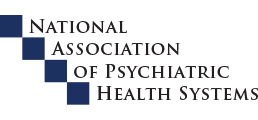Don’t let co-occurring disorders rob you of one more day. Sierra Tucson can provide you with the personalized treatment you need so that you can live the healthier life you deserve. Learn more about our comprehensive services in Tucson, Arizona.
Understanding Co-Occurring Disorders
Learn about co-occurring disorders
Mental health issues and behavioral health disorders can be challenging both for the person with the disorder and those who love, care about, and/or are dependent upon the sufferer.
Mental and behavioral health disorders can disrupt virtually every aspect of a person’s life, with repercussions that can resonate throughout families, workplaces, and social circles. Disorders can make it difficult if not downright impossible for people to be effective parents or partners, while diseases such as addiction and depression can overwhelm an individual’s ability to function altogether.
Misconceptions
Misconceptions about co-occurring disorders preventing help
Complicating the matter even further, though awareness and understanding about the different types of disorders have increased significantly in recent decades, wrong perceptions continue to prevent many people from getting the help they need. Whether due to shame, a belief that mental health problems aren’t “real” illnesses, or fear that no treatment can help, too many people and families have suffered for too long.
Types
Types of co-occurring disorders
The following is a list of the different types of disorders:
- Anxiety Disorder – A range of disorders where the main feature is exaggerated anxiety.
- Behavioral Disorders
- Bipolar Disorder – Has symptoms that include an alternating pattern of emotional highs/mania and emotional lows/depression.
- Depression Disorders – A series of two or more major depressive episodes, which manifest in continuing irritability or inability to get along with others.
- Mood Disorders
- Panic Disorder
- Post-Traumatic Stress Disorder (PTSD) – Symptoms can develop following exposure to an extremely traumatic event or series of events, or witnessing or learning about a death.
- Social Anxiety Disorder – Characterized by intense fear in social situations, causing distress and impaired ability to function in some parts of daily life.
The good news is that for the vast majority of the most common types of disorders, both mental and behavioral health, help at our rehab is both available and effective. Of course, treatment and recovery depend upon a number of factors unique to the individual client, but decades of developments in the field of behavioral health care have yielded a wide range of successes.
For some residents at our treatment center, traditional therapy and/or medication can resolve the issues. In other cases, more innovative and intensive treatment modalities are necessary. But regardless of the circumstances that bring a person into treatment, productive collaboration among qualified professionals and a dedicated client have the potential to significantly improve the lives of the resident and their loved ones.
However, recovery can’t take place until the resident is assessed, the disorders are identified, and an effective comprehensive treatment plan is put into place.
Signs and Symptoms
Signs and symptoms of co-occurring disorders
It’s not uncommon for people to use the word “mood” when describing happiness, sadness, grumpiness, and related temporary emotional states. (For example, “I had a great date last night, and I’ve been in a good mood all day!” or “Don’t ask the boss for a raise today—he’s been in a bad mood ever since they took his reserved parking spot away.”)
Symptoms
What are mood disorders? In mental health terms, the term mood disorder has a specific meaning that transcends temporary moments of joy or sorrow. In a clinical setting, a mood disorder refers to persistent emotional states that have significant influence over the way a person views and interacts with the world.
When a person descends into depression or elevates into mania, they are said to have a mood disorder. Again, it is important to understand that short-term feelings of happiness, sadness, fear, worry, and other common emotions do not signal the presence of a mood disorder. It is only when a person’s state of mind becomes so acute that it impairs their ability to think or act clearly, that a mood disorder diagnosis may be called for.
Types of Treatment
Types of co-occurring disorder treatment offered at Sierra Tucson
At Sierra Tucson, the best rehab center for mood disorder treatment, mood disorder residents are treated within our Mood & Anxiety Program. Mood and anxiety treatment at our rehab center is guided by the principles established in the Sierra Tucson Model®, which provides an integrated bio-psycho-social-spiritual foundation for premier, holistic, resident-focused care.
The following types of therapies have proven effective in the treatment of residents with a mood disorder, including depression, bipolar disorder, panic, anxiety, and related conditions.
- Individual, group, and family therapy
- Psycho-educational classes and lectures
- Cognitive Behavioral Therapy (CBT)
- Dialectical Behavior Therapy (DBT)
- Integrative therapies
- Skills training
- Medication management













